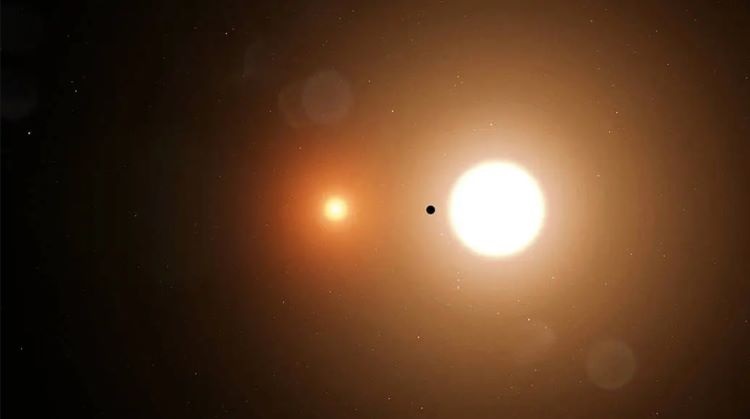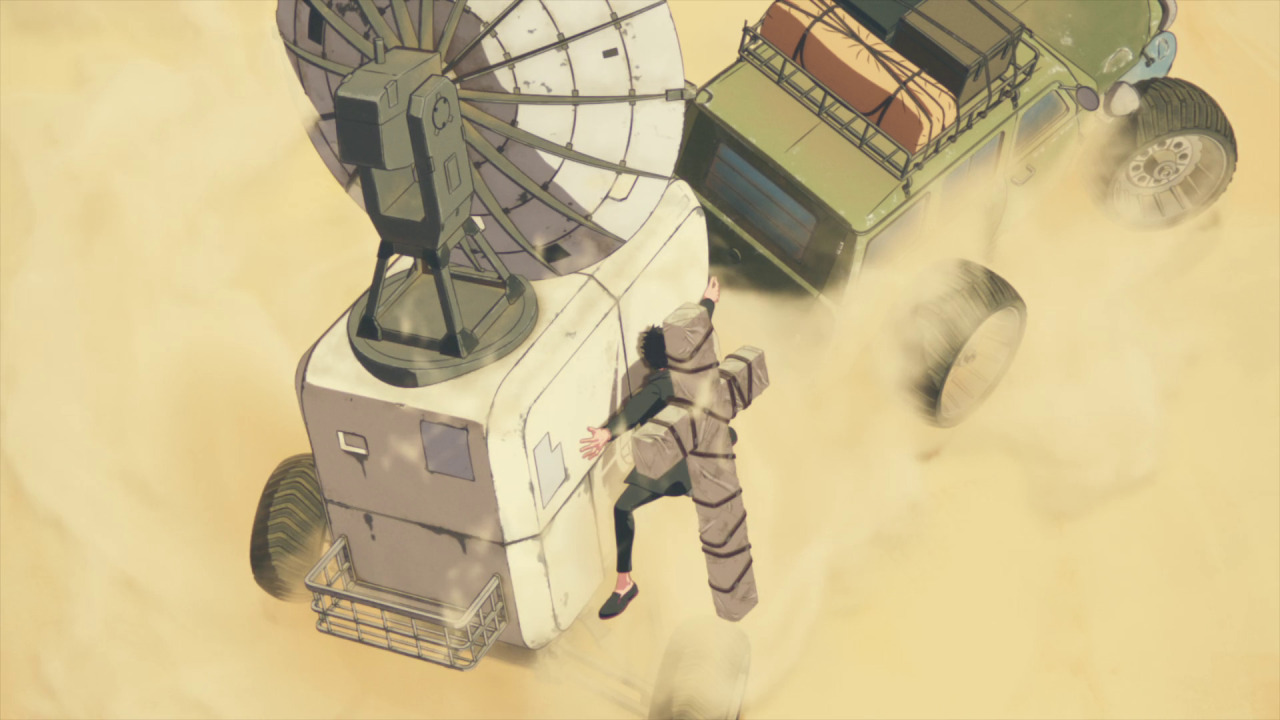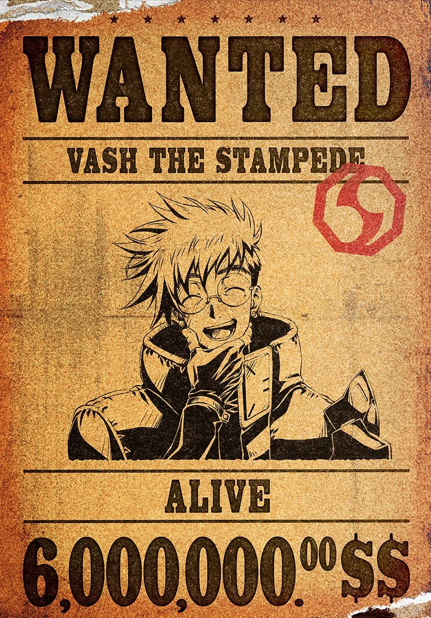Welcome to Gunsmoke!
See that dot? A planet like that is exactly where Trigun is set.
Under the blazing heat of the twin suns, humanity struggles to survive.

population: Descendants of crashed spacefarers, two angels,
not enough plants, and a bunch of worms.
Over the course of over a century, they managed to build a life, cities even, despite all the adversity. That was when the name of Vash the Stampede was etched into the history of the planet forver, as the demon who destroyed the city of July.
But- and hear me out,
He's the cutest atomic bomb you will ever see.
Tales of three worlds
Talking about Trigun is often difficult because it's not just one thing: it's three canons with some very different vibes. On the table in front of you are three cards, each containing information on the three worlds and their relationship to each other.
The original Anime is the version most know. It's got a low budget charm, but it laid the groundwork for the others after it! It was based on only the first two volumes of the manga, but includes elements that would later appear in it.
The manga is the same as the 98 anime until it hits its overall 3rd volume (vol 1 of trigun maximum) after which it goes on its own, uniquely tragic and fucked up way. It fleshes out and adds way more characters. And Vash isn't sexist.
12 episode series, incorporating elements from much later in the manga than the 98 series, while also mixing up the timeline a little. "July" hasn't happened yet, and two of our human heroes read as much less experienced.
Understand that it's silly!
See, if there's one problem with the fandom that I feel I participate
in, it's that we tend to overfocus
on the angsty, tragic aspects of it. While those certainly exist, sometimes
it's good to check back in and remember that you grew to love a story that is at times hard to take seriously.

(Wolfwood getting hit by Meryl's company car
0.2 seconds after first appearing on screen)
Great, where to start?
Trigun, all three versions, tells the story if Vash the Stampede, a gentle, kind hearted gunman, who is on a mission to defeat his twin brother, Millions Knives, who wants to destroy humanity. Their world is kept alive by Plants, or angels kept in tanks and attended to by Plant engineers. They are responsible for producing electricity, water, food, ect. While the word "plant" originally refers to "Powerplant," Tristamp leans more heavily on "plant" in the botanic sense.
On his journey, Vash is joined by Meryl Stryfe, Milly Thompson, (Or Roberto De Niro in Tristamp - Milly will be in the continuation) and a bit later, Nicholas D. Wolfwood. The four of them form inseparable bonds, maybe even romantic ties.
In my opinion, there's two good ways to approach it:
1. You can go Tristamp -> Manga -> '98
or
2. '98 -> Manga -> Tristamp.
But why?
As i said, the vibes are different. Tristamp works with the later volumes of the manga, making it more sci-fi and less western, while '98 was made when the heavier sci-fi elements of the manga weren't written yet.
This means that watching the two animes after each other can feel like you're watching two radically different shows, and this way, you may feel tempted to join the redditors who will die on any hill to defend '98 and call Tristamp an "unfaithful adaptation" of it, while refusing to read the actual source material for both. The opposite may also happen where you only like tristamp, but I have honestly not seen those people engage in adaptation discourse.
You could also start with the manga if you want, but I like the gradient that reading it in the middle provides.
Of course, you don't have to get into all three, but if you wanna do fandom about it, I recommend it. It gives something of an understanding of where the continuation of Stampede, Stargaze is going to go from here, and prevents you from writing fics where Wolfwood treats his sinister glowing blue vials like candy. Do not do that.
And where?
You can watch the animes on just about any site you can find anime on, but since this is an obscure neocities site, I feel I can link 9Anime without having to worry about loose lips sinking ships. The manga is a more complicated matter however, since on most manga sites, the scanlation they've got avalible is low quality with bad faith translation. (including slurs not present in the original.) The Official Dark Horse translation is also online somewhere, but it's also recieved for being outdated - referring to Elendira the Crimsonnail as a "Transvestite" for instance, when she's meant to be transgender.
The recommended translation is The Trigun Manga overhaul, a non-profit fanproject on Tumblr. They also have artbooks, the Multiple Bullets Antalogy, ect.
 population: Descendants of crashed spacefarers, two angels,
population: Descendants of crashed spacefarers, two angels, 

